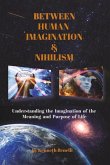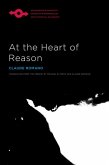Gilles Deleuze's assertion that Jean-Paul 'Satre knew how to invent the New' suggests a vital aspect of the French existentialist philosopher—one that departs from the image most commonly presented of him. Sartre's post-1956 critique of the Stalinist USSR, together with the increasing prominence of anti-colonial struggles and a series of experiences that would find their condensation in 1968, pushed him to a continuous rearticulation of his political ideas, on the basis of an intense confrontation with Marx. In Basso's lucid study of Satre, here newly translated into English, the expression 'singular universal' seeks to capture the revolutionary potential of individual and collective subjects, illuminating the close but also unstable relationship between history and politics.
Hinweis: Dieser Artikel kann nur an eine deutsche Lieferadresse ausgeliefert werden.
Hinweis: Dieser Artikel kann nur an eine deutsche Lieferadresse ausgeliefert werden.








